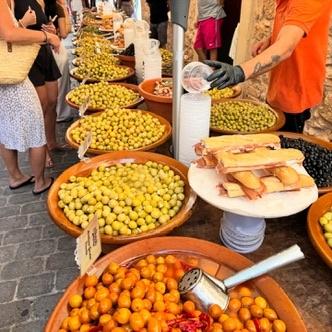How does Mallorca’s climate affect the quality and taste of its olives and olive oil?
Similar Topics
mallorca climate olives
mediterranean climate olives
olive oil quality
olive flavor profile
microclimates olive growth
olive oil aromas
soil composition olives
traditional olive harvesting
Mallorca’s climate plays a significant role in shaping the quality and taste of its olives and olive oil. The island enjoys a Mediterranean climate characterized by hot, dry summers and mild, wet winters, which creates ideal growing conditions for olive trees. The long hours of sunshine help the olives ripen fully, enhancing their natural sugars and oils, while the drought conditions reduce water stress on the trees, leading to a more concentrated and robust flavor profile in the fruit. The temperature fluctuations between day and night also contribute to the development of complex aromas and tastes in the olives.
The island’s varied microclimates, influenced by its mountainous interior and coastal proximity, further enrich the diversity of olive varieties grown. In areas with higher altitudes and cooler temperatures, olives tend to mature more slowly, preserving a balance between bitterness and fruitiness, which translates into a well-rounded olive oil with distinctive herbal and earthy notes. In contrast, olives from the warmer, lower regions often yield more intense and peppery oils, prized for their pungency and depth. Additionally, the relatively low humidity levels help reduce the risk of fungal diseases, allowing for a healthier crop that requires minimal chemical intervention, thus maintaining the purity of flavor.
Moreover, the island’s soil composition, composed mostly of limestone and clay, complements the climate by providing good drainage and retaining necessary minerals that the olive trees absorb, contributing to the subtle mineral undertones found in Mallorcan olive oils. Local producers often emphasize traditional harvesting methods that respect these environmental conditions, picking olives at the optimal moment to ensure peak freshness and oil quality. Overall, Mallorca’s climate not only supports sustainable olive cultivation but also infuses the olives and resulting olive oils with a unique character that reflects the island's natural environment. This makes Mallorcan olive oil a sought-after product distinguished by its balance, complexity, and regional authenticity.
The island’s varied microclimates, influenced by its mountainous interior and coastal proximity, further enrich the diversity of olive varieties grown. In areas with higher altitudes and cooler temperatures, olives tend to mature more slowly, preserving a balance between bitterness and fruitiness, which translates into a well-rounded olive oil with distinctive herbal and earthy notes. In contrast, olives from the warmer, lower regions often yield more intense and peppery oils, prized for their pungency and depth. Additionally, the relatively low humidity levels help reduce the risk of fungal diseases, allowing for a healthier crop that requires minimal chemical intervention, thus maintaining the purity of flavor.
Moreover, the island’s soil composition, composed mostly of limestone and clay, complements the climate by providing good drainage and retaining necessary minerals that the olive trees absorb, contributing to the subtle mineral undertones found in Mallorcan olive oils. Local producers often emphasize traditional harvesting methods that respect these environmental conditions, picking olives at the optimal moment to ensure peak freshness and oil quality. Overall, Mallorca’s climate not only supports sustainable olive cultivation but also infuses the olives and resulting olive oils with a unique character that reflects the island's natural environment. This makes Mallorcan olive oil a sought-after product distinguished by its balance, complexity, and regional authenticity.
🧩 Related Questions
Related Question
Are there opportunities for tourists to buy authentic Mallorcan olive oil during these festivals?
Related Question
How is Mallorca’s coastal geography reflected in its seafood cuisine?
Related Question
How can visitors participate in workshops or events hosted by nunneries in Mallorca?
